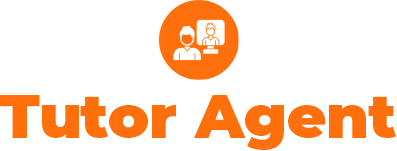In the ever-evolving landscape of education, the ability to master effective study skills is a cornerstone for academic success. This article explores the pivotal role of tutoring in cultivating healthy study habits and providing students with the tools they need to navigate the complexities of learning. From time management to active reading strategies, we delve into various aspects of study skills development, aiming to empower students on their journey to academic excellence.

Understanding the Foundations
Before delving into the nuances of tutoring for study skills development, it’s crucial to establish a clear understanding of what study skills encompass. Study skills go beyond the memorization of facts; they encapsulate a range of abilities such as time management, note-taking, active reading, and critical thinking.
The Tutoring Advantage
Personalized Time Management Techniques
Effective time management is a linchpin in successful study skills development. Tutors work closely with students to identify their individual schedules, commitments, and peak productivity hours. By tailoring time management techniques to the student’s lifestyle, tutors empower them to allocate dedicated study periods, ensuring optimal concentration and efficiency.
Active Reading Strategies for Better Comprehension
Active reading is a skill that transforms the act of reading into a dynamic, engaging process. Tutors guide students in employing techniques such as highlighting, summarizing, and asking questions while reading. These strategies not only enhance comprehension but also encourage a deeper connection with the material.
Note-Taking Mastery
Effective note-taking is an art that significantly contributes to information retention. Tutors coach students on various note-taking methods, from traditional outlining to mind mapping. By honing this skill, students can create comprehensive study aids that serve as valuable resources during exams and assignments.
Navigating the Digital Landscape
Utilizing Educational Apps and Tools
Tutors leverage the power of technology to enhance study skills development. From digital flashcards to collaborative platforms, these resources cater to diverse learning styles, ensuring that students harness the benefits of technology for academic growth.
Effective Online Research Techniques
In an era dominated by digital information, the ability to conduct effective online research is paramount. Tutors guide students in refining their search queries, evaluating online sources for credibility, and organizing digital information. These skills not only support academic endeavours but also contribute to digital literacy.
Digital Organization and Productivity
Tutors assist students in mastering digital organization tools, fostering a sense of productivity in their academic pursuits. Whether it’s utilizing productivity apps, cloud-based storage, or task management tools, students learn to streamline their digital environments, minimizing distractions and maximizing focus.
Building a Foundation for Academic Excellence
Critical Thinking and Problem-Solving Skills
Study skills development goes hand in hand with the cultivation of critical thinking and problem-solving abilities. Tutors engage students in thought-provoking discussions, challenging them to analyze information critically and approach problem-solving with a strategic mindset. These skills transcend exam preparation. Hence, laying the groundwork for lifelong learning.
Stress Management and Well-Being
Recognizing the toll that academic pressure can take on students, tutors incorporate stress management techniques into study skills development. From mindfulness exercises to time for self-care, these strategies not only enhance well-being but also contribute to a balanced and sustainable approach to academic success.
Measuring Success
The effectiveness of tutoring for study skills development lies in the ability to measure progress and adapt strategies accordingly. Tutors employ regular assessments, feedback sessions, and goal-setting exercises to gauge the impact of study skills interventions. This dynamic approach ensures that tutoring remains a tailored and evolving process, directly addressing the evolving needs of each student.
Conclusion
In conclusion, tutoring for study skills development transcends the confines of exam preparation. It is a holistic approach to empowering students for a lifetime of learning. By fostering personalized strategies, integrating technology, and nurturing critical thinking, tutors play a pivotal role in shaping the academic journey of their students. As the educational landscape continues to evolve, the partnership between tutors and students in the realm of study skills development remains a beacon, guiding learners toward not only academic success but also a robust foundation for lifelong intellectual growth.



